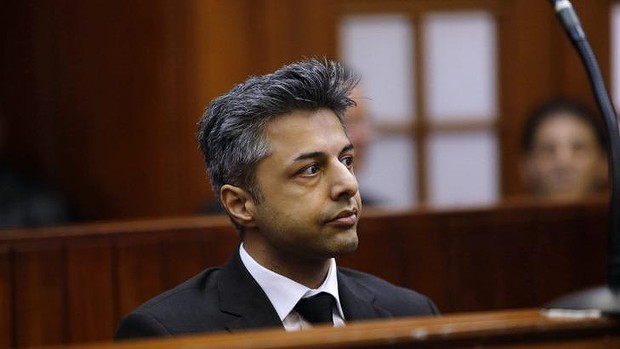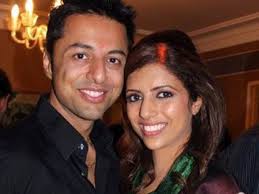CAPE TOWN, (Reuters) – British businessman Shrien Dewani denied arranging the murder of his bride during their honeymoon in South Africa at the start of his trial today, four years after she was found shot dead in an abandoned car on the outskirts of Cape Town.
Dewani is accused of conspiring with a taxi-driver to stage a car-jacking as the couple were driven through Gugulethu township in November 2010.
“I plead not guilty to all five counts, my lady,” Dewani told the judge after the state prosecutor read out the charges including murder, kidnapping and robbery with aggravating circumstances. If found guilty he faces up to 25 years in jail.
In his plea explanation read to the court, Dewani said he and his bride Anni had been held up and robbed by gunmen as they were driven around Cape Town, South Africa’s premier tourist destination.

Anni, a former model, was later found several kilometres (miles) away in another township, dead from a single gunshot wound.
Dewani also told the court that he was bisexual – apparently a response to British media speculation that he orchestrated Anni’s murder to escape from the psychological torment of being trapped in a heterosexual relationship.
It is the second high-profile trial this year to turn the spotlight on South Africa’s judicial system and high murder rate. More than 17,000 people were murdered in South Africa between April 2013 and March 2014, an increase of about 800 over the previous year, according to police figures.
Olympic and Paralympic track star Oscar Pistorius was convicted in September of culpable homicide for the killing of his girlfriend Reeva Steencamp, escaping the more serious charge of murder.
Dewani lost a three-year legal battle in Britain to avoid being tried in South Africa, where three men convicted in connection with the killing of his wife have implicated him in the crime, dubbed the “honeymoon murder”.
NIGHT LIFE
The court heard that on the night of the killing, Dewani and Anni were driven around in Cape Town by taxi-driver and co-accused Zola Tongo along the motorway because they could not decide where to go to enjoy Cape Town’s night life.
They turned off the motorway and the “next thing I remember was banging noises coming from the front and the right hand side of the car.” The occupants were ordered at gunpoint to lie down and to hand over their phones and money.
“They spoke to each other in a language I did not understand. The next thing I remember, they were both shouting at me to get out,” said Dewani before Judge Jeanette Traverso in the Cape High Court.
“The one with the gun put it to my head again and threatened to shoot me if I did not get out…I recall hitting the ground and the car speeding away. The last thing I had said to Anni was to be quiet and not to say anything. I said this to her in Gujarati,” said the statement, read by defence lawyer Francois van Zyl.
 A tired-looking Dewani, 34, dressed in a black suit and white shirt, looked down and wiped tears away as events were recalled.
A tired-looking Dewani, 34, dressed in a black suit and white shirt, looked down and wiped tears away as events were recalled.
Dewani also confirmed that he had sexual relations with men, including a German prostitute named Leopold Leisser.
“My sexual interactions with males were mostly physical experiences or email chats with people I met online or in clubs, including prostitutes,” his statement said.
There were audible gasps in court as a police video of the murder scene showed Anni lying on the back seat of an abandoned car, blood pooled on the road.
Anni died of a single gunshot wound to the neck, which caused massive blood loss, the first witness said.
“In a few heartbeats…the deceased would have bled out,” state pathologist Janette Verster said.
Anni’s family wore ribbons and a smiling picture of her pinned to their jackets in memory of their daughter.
The court adjourned to Wednesday, when state lawyers said their next witness would be ready.
About 20 members of the ruling ANC party’s Women’s League demonstrated outside the building, chanting and waving placards that read: “Justice for Anni”.




